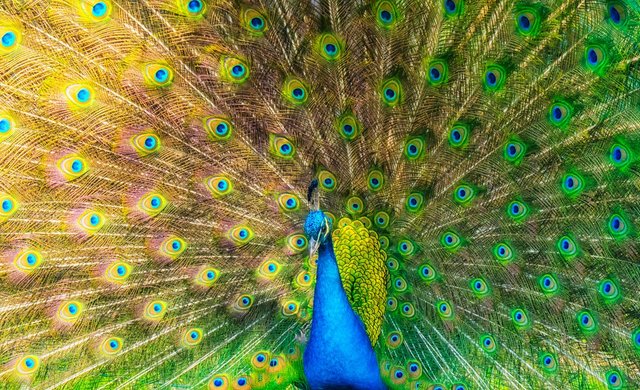ANIMALS ARE LIVING color. Wasps buzz with painted warnings. Birds shimmer their iridescent desires. Fish hide from predators with body colors that dapple like light across a rippling pond. And all this color on all these creatures happened because other creatures could see it.
The natural world is so showy, it’s no wonder scientists have been fascinated with animal color for centuries. Even today, the questions how animals see, create, and use color are among the most compelling in biology.
Until the last few years, they were also at least partially unanswerable—because color researchers are only human, which means they can’t see the rich, vivid colors that other animals do. But now new technologies, like portable hyperspectral scanners and cameras small enough to fit on a bird’s head, are helping biologists see the unseen. And as described in a new Science paper, it's a whole new world.
The natural world is so showy, it’s no wonder scientists have been fascinated with animal color for centuries. Even today, the questions how animals see, create, and use color are among the most compelling in biology.
Downvoting a post can decrease pending rewards and make it less visible. Common reasons:
Submit
Congratulations @nupurvaid! You received a personal award!
Click here to view your Board
Downvoting a post can decrease pending rewards and make it less visible. Common reasons:
Submit
Congratulations @nupurvaid! You received a personal award!
You can view your badges on your Steem Board and compare to others on the Steem Ranking
Vote for @Steemitboard as a witness to get one more award and increased upvotes!
Downvoting a post can decrease pending rewards and make it less visible. Common reasons:
Submit